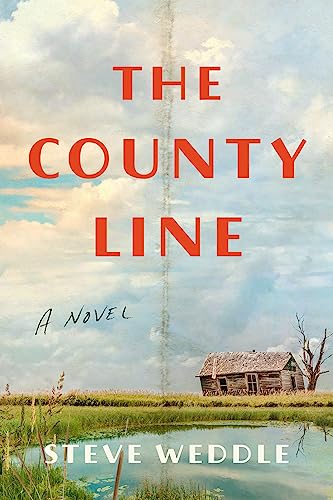The County Line
Steve Weddle’s novel is steeped in a forgotten time and place when desperate times, aggravated by war and the Great Depression, called for desperate measures. Some folks turned to bootlegging, others to robbery or kidnapping, followed by a race across the county line ahead of the law. Cottonmouth Tomlin knows all about hardship. Abandoned by both mother and father, he’s learned some hard lessons. He’s been off fighting in the Honduran jungle, and in 1933 returns to take up an unlikely inheritance, a used-to-be hunting lodge turned outlaw camp, left to him by his deceased uncle. Located at the edge of the Dorcheat bayou and inaccessible by road, it’s a safe haven for outlaws to rest up and plan their next heist. The townsfolk don’t care who shows up there as long as they spend their money locally and commit their crimes outside the county line.
Unfortunately, Cottonmouth’s uncle borrowed heavily from the Rudd sisters, who profit from protection money and run the sheriff, the town, and the community. Cottonmouth, a man of few words and big ideas, plans to do things his way. Henrietta and Abigail Rudd’s self-aggrandizing control for the good of the community is still control, and Cottonmouth isn’t willing to play their game.
An eclectic cast of characters take the stage here. Outlaw Beans, in particular, is thick as two planks yet so endearingly amenable. Cottonmouth brings in an out-of-county partner, which ruffles Henrietta Rudd’s ruthless feathers. Determined to keep control of what she presumes is her community, she and the gin-soaked Abigail up the ante, putting Cottonmouth squarely in their sights. With nostalgic reminiscences, some local dialect and wry humour, Weddle writes of hardscrabble times and ordinary people who are just trying to get by. A rollicking good tale about the meaning of community and little-people power, set in Depression-era Louisiana.










